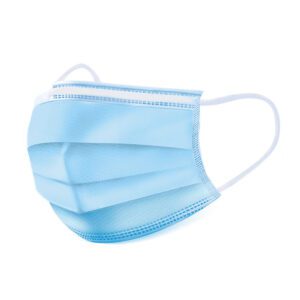It will be some time before a substantial fraction of the human population is immunized to prevent COVID-19. In the meantime, widespread use of face masks can have an impact on disease, a conclusion suggested by results of a trial carried out in Bangladesh.
WHO would not recommend the use of face masks until June 2020 for two reasons: there was no evidence for their effectiveness from controlled trials, and the idea that wearing them would encourage behaviors, such as failing to physically distance, leading to more transmission. Both have been tested in the Bangladeshi trial.
The face mask trial was carried out in rural Bangladesh from November 2020 to April 2021. It enrolled 342,183 adults in 600 villages and consisted of control groups (no mask wearing) and groups that wore either a surgical mask or a cloth mask. Mask wearing was 13.3% in control villages and 42.3% in treatment villages. The primary outcome was symptom seroprevalence, determined by assaying blood samples from those who reported symptoms.
Wearing masks reduced symptomatic seroprevalence in treatment villages (0.68%) compared with control villages (0.76%). The reduction in seroprevalence by mask wearing was 11% overall, and 23% among those between the ages of 50 and 60, and 35% among those over 60 years of age. This reduction corresponds to 1,514 fewer people reporting symptoms, and 105 fewer seropositive. It is not clear why a greater reduction in COVID-19 cases were observed in the elderly. A higher percentage of them might have worn masks, or they might be more susceptible to infections that can be stopped by masks. Surgical masks had a clear impact on development of COVID-19, while the effects seen with cloth masks did not reach statistical significance.
These results do not imply that mask wearing prevents only 10% of COVID-19 cases or deaths. It is likely that near-universal masking could have an even greater impact.
Equally important were the findings that masking increased, rather than decreased, physical distancing: in control villages, 24.1% of observed individuals were physically distanced, compared with 29.2% in treatment villages. An explanation for this result is that wearing a mask may convince people to take the pandemic more seriously.
Also interesting was the observation that in-person reinforcement was the best way to encourage people to wear masks. This reinforcement includes stopping people in public places and reminding them to wear masks. Public messaging, such as text messages, had no effect. This information is important for policy makers who feel that public messaging can be effective.
Finally, there was little reduction in mask-wearing in the 10 weeks after the study ended. After this time mask wearing dropped but was still 10 percentage points higher in treatment regions.
At a cost of $1.50 per person, the use of face masks can have a substantial impact on reducing COVID-19, especially in countries with little access to vaccines.


Pingback: A managed trial of face masks for COVID-19 | News I Can
Masking and social distancing remain the cheapest COVID-19 preventatives. They are by no means 100% effective, but they do work. This is also evidenced by the fact that the 2020-2021 winter flu season didn’t happen,presumably due to the above COVID-19 preventatives. As expected, cloth masks are less effective than medical masks, but it remains possible that two- or three-layer cloth masks might approach the efficiency of medical masks.
If this is the same Bangledesh RCT, these folks claim there’s too much bias in household enrollment between treatment and control villages, affecting the denominator of their relative rates :
https://www.argmin.net/2021/12/01/unblinding/
Interesting argument.
Not as strong of an effect as we all hoped for… can we do better?
I want to know how a strain of a avian flu can surprising all others variant, and what is the expectation about the variant get endemic with the possibility of jup o other species. Thank you.
Pingback: Virology Hub - All about viruses of human, animals and plants
Pingback: A controlled trial of face masks for COVID-19 | News I Can